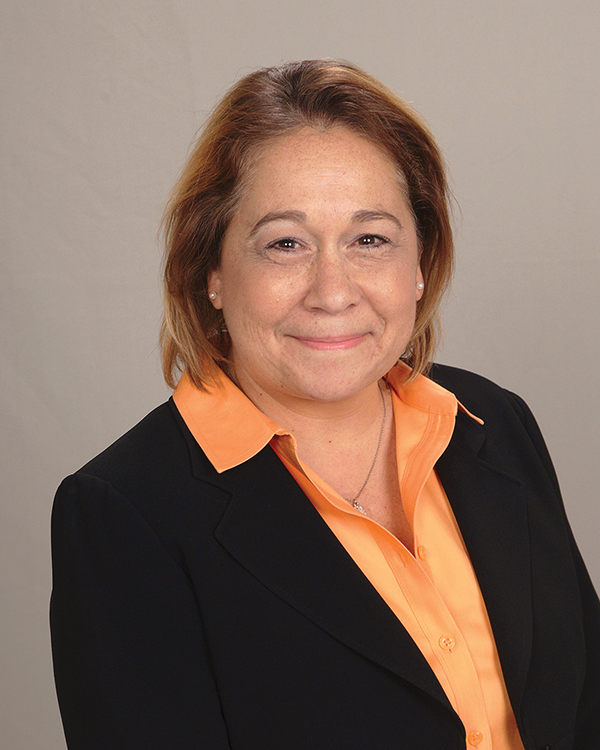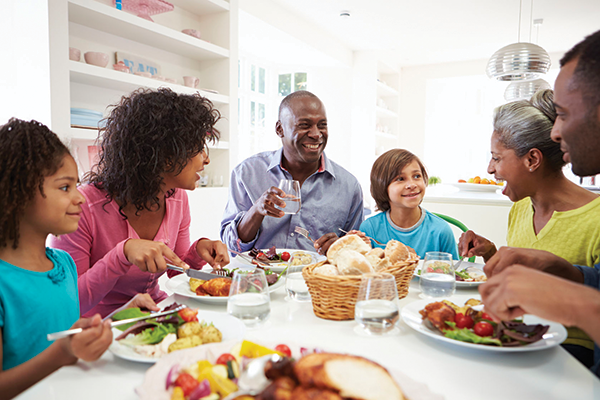Depression: The Unwelcome Guest
by Katherine Easton, LCSW, OSW-C
When people think about the side effects of cancer treatment, physical effects like fatigue, hair loss, and nausea and vomiting are often what come to mind. However, cancer survivors are at risk of developing another rarely discussed, and far less visible, side effect – depression. This unwelcome, and often unexpected, guest can even affect people who may normally have healthy coping skills.
In an effort to help combat cancer-related depression, the American College of Surgeons’ Commission on Cancer now requires community cancer centers to screen anyone undergoing cancer treatment for something doctors refer to as distress. Distress is an unpleasant emotional experience that may interfere with a person’s ability to cope effectively with cancer, its physical symptoms, and its treatment. Left unchecked, persistent distress can lead to depression. Most oncologists now actively assess and treat distress and depression as part of comprehensive cancer care.
What is depression?
Everyone feels low sometimes, but these feelings usually pass after a few days. When you have depression, the low feelings persist, and they can be intense. These low feelings hinder your ability to do simple, everyday activities for weeks at a time.
People who have been diagnosed with cancer may be at higher risk of developing depression for numerous reasons. During cancer treatment, you may experience increased feelings of fear or worry, along with other powerful emotions. In addition, many people have difficulty adjusting to the significant changes cancer brings about in their lives, their work, and their relationships.
Not all people experience depression in the same way. For some, it is experienced as a sad or “empty” feeling. Others may feel a sense of hopelessness or helplessness. And still others may experience more physical symptoms, such as fatigue, aches and pains, headaches, loss of appetite or an inability to sleep. For many, depression causes a loss of interest or pleasure in activities they once enjoyed.
What causes depression?
Different factors play a role in the risk of depression. The disorder tends to run in families. One of the reasons for this has to do with genes. Some genes increase the risk of depression, while others increase resilience (or the ability to recover from hardship) and protect against depression.
Experiences such as trauma or abuse during childhood and stress during adulthood can also raise your risk of depression. However, factors such as a warm family and healthy social connections can increase resilience, which may lower your risk of developing depression. Hormonal therapies used to treat some cancers also put people at higher risk of depression.
Many cancer survivors experience situational depression in response to their illness. Sometimes referred to as an adjustment disorder, situational depression is defined as a short-term condition in which a person has difficulty coping with or adjusting to a particular source of stress, such as a major life change, loss, or stressful event. A cancer diagnosis definitely fits that description. However, it’s important to note that some stressors or losses can trigger depression in one person but not another. Thus, while many cancer survivors do experience depression, not all people with cancer are depressed.
What should I do if I think I’m depressed?
Depression is a serious illness that needs treatment, as it may significantly affect your quality of life. A combination of antidepressant medications and psychotherapy is often the best approach to treating depression.
Psychotherapy, or “talk therapy,” may help by teaching you new ways of thinking and behaving. Your therapist may also work with you to change habits that may be contributing to your depression. Moreover, therapy can help you understand and work through difficult relationships or situations that may be causing your depression or making it worse.
Discussing your concerns about your depression is an important conversation to have with your oncologist. Your doctor may decide to prescribe an antidepressant and encourage you to meet with a behavioral health specialist, such as a licensed professional counselor or licensed clinical social worker, with experience treating individuals with cancer. In addition to professional help, you may also find that support groups, wellness classes, a balanced diet, and exercise may also help you manage your depression.
Living with cancer can be difficult, but that doesn’t mean you have to live with depression and sadness. Remember, depression is an unwelcome guest. Don’t let it have a seat at the table. Seek help for your depression, and take back control of your life.

Katherine Easton is a licensed clinical social worker certified in oncology at Atlanta Cancer Care, affiliated with Northside Hospital Cancer Institute, in Atlanta, GA, where she provides clinical psychosocial support to individuals with cancer and their families.
This article was published in Coping® with Cancer magazine, March/April 2016.


